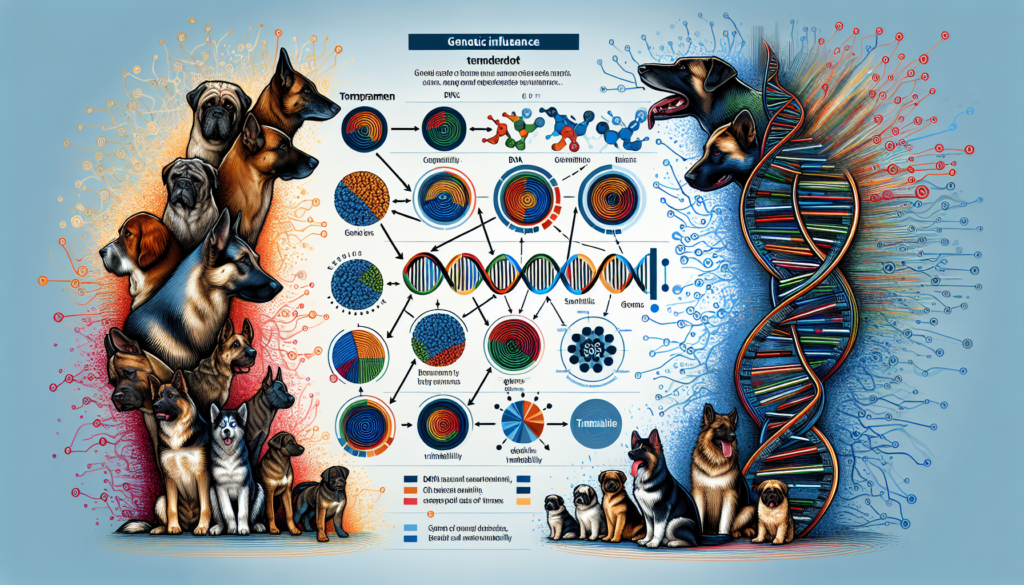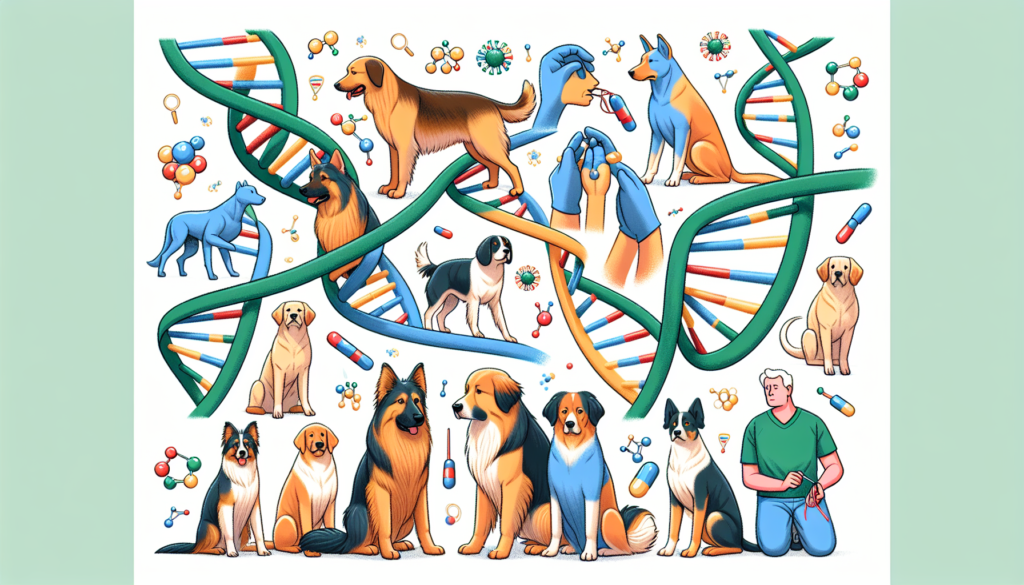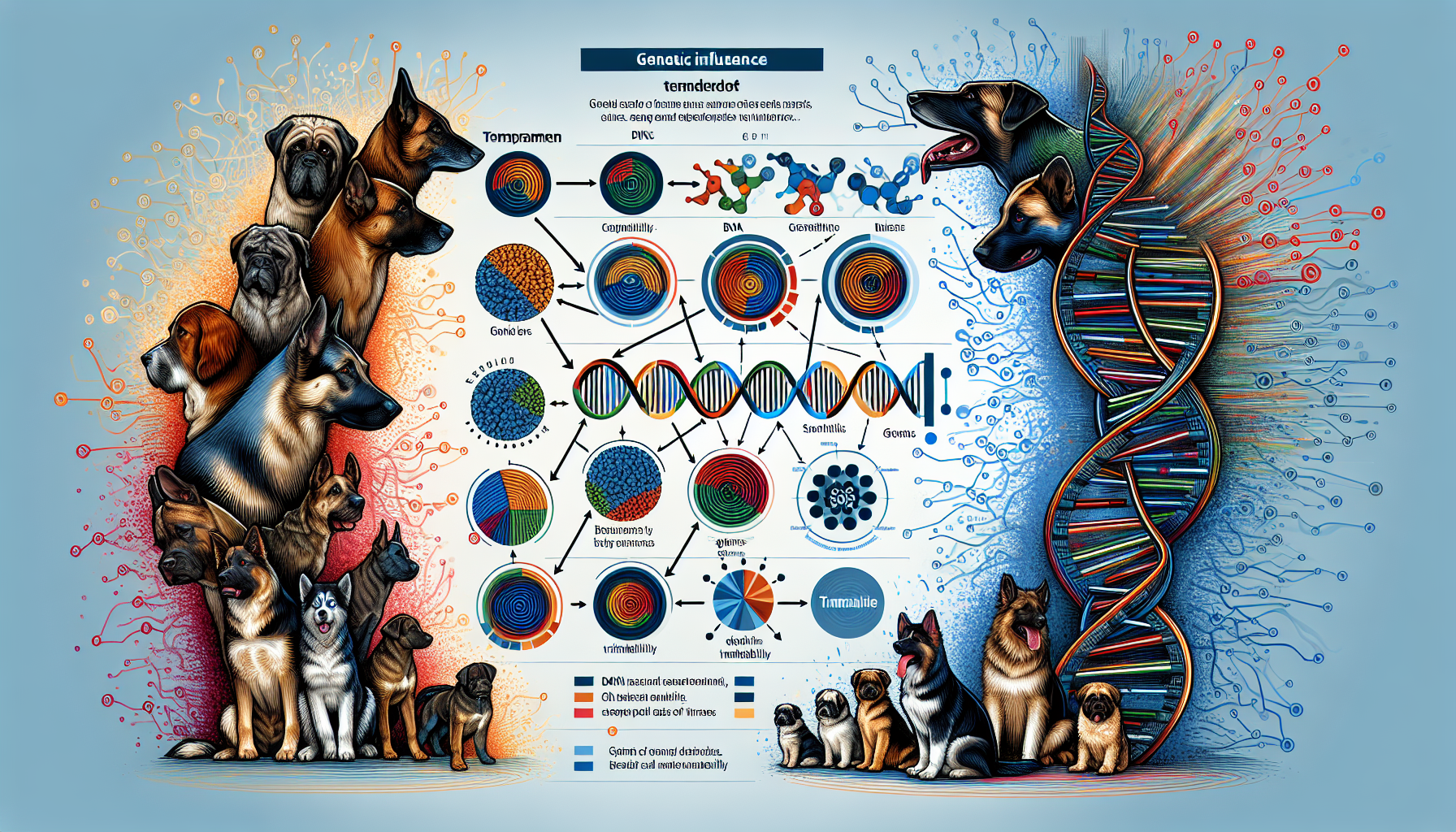Have you ever wondered why some dogs are naturally obedient and well-behaved, while others seem to always be mischievous and unruly? It turns out that genetics may play a crucial role in shaping a dog’s behavior. Research has shown that certain genes can influence a dog’s temperament, trainability, and propensity for certain behaviors. Understanding the role of genetics in dog behavior can not only help us better understand our furry friends but also provide valuable insights into training and behavior modification strategies. So, let’s explore the fascinating world of genetics and its impact on our beloved canine companions.
The Role of Genetics in Dog Behavior
Understanding Genetics in Dogs
As dog owners, it is fascinating to observe the unique behaviors and characteristics that our furry friends display. Have you ever wondered why some dogs are more prone to certain behaviors while others are not? The answer lies in the complex world of genetics. Genetics is the study of heredity and how traits are passed down from one generation to another. Understanding the role of genetics in dog behavior is not only interesting but also essential in helping us better understand and manage our canine companions.
The Connection Between Genetics and Behavior
Genetics play a significant role in shaping a dog’s behavior. Dogs, just like humans, inherit certain traits from their parents, including behavioral predispositions. These predispositions can influence various aspects of a dog’s behavior, such as temperament, energy levels, trainability, and sociability. While genetics are not the sole determinants of behavior, they do provide a foundation upon which a dog’s personality is built.

Inherited Traits and Behaviors
Many of the behavioral traits that dogs possess are passed down through their genes. For example, some breeds are known to be more prone to aggression, while others are known for their loyalty and gentleness. These inherited tendencies are the result of specific genetic variations that have been selected and preserved over time. However, it’s important to note that while genetics may predispose a dog to certain behaviors, environmental factors also play a significant role in shaping a dog’s behavior.
Breed-Specific Behaviors
Different dog breeds are known for exhibiting specific behaviors that are characteristic of their breed. This is largely due to selective breeding, which has resulted in different breeds carrying distinct genetic traits. For example, herding breeds like Border Collies have a natural instinct to chase and round up livestock, while scent hounds like Bloodhounds have an exceptional sense of smell and are known for their tracking abilities. Understanding breed-specific behaviors is crucial when selecting a dog that aligns with your lifestyle and expectations.

The Impact of Nature vs. Nurture on Dog Behavior
The age-old debate of nature versus nurture applies to dog behavior as well. While genetics provide the blueprint for a dog’s behavior, the environment and upbringing they are exposed to also significantly impact their behavior. A dog may inherit certain behavioral tendencies, but how they are raised, trained, and the experiences they have play a vital role in shaping their behavior. This is why early socialization, training, and providing a nurturing environment are key in raising well-adjusted and balanced dogs.
Genetic Disorders and Behavioral Issues
In addition to influencing behavioral predispositions, genetics can also contribute to the development of certain behavioral issues and genetic disorders in dogs. Some breeds are more prone to specific genetic disorders, such as epilepsy or compulsive behaviors, due to certain genetic mutations. These disorders can cause significant distress to both the dog and their owners. By understanding the genetic factors that contribute to these disorders, researchers and breeders can work towards developing better preventive measures and treatments.
Genetic Testing in Dog Behavior Assessment
Advancements in genetic research have paved the way for the development of genetic tests that can provide insights into a dog’s potential behavioral traits. These tests can help identify breed ancestry, predict behavioral tendencies, and even detect genetic disorders. By understanding a dog’s genetic makeup, owners and trainers can make informed decisions about training methods, behavioral modification, and appropriate environmental enrichment. However, it is important to note that genetic testing is still an emerging field, and its accuracy and applicability may vary.
Selective Breeding and Behavior
Selective breeding, the deliberate mating of dogs with desirable traits, has been a powerful tool in shaping dog behavior. By selectively breeding dogs with specific behavioral traits, breeders can encourage the preservation of desirable behaviors and discourage undesirable ones. For example, a breeder may focus on producing dogs with a calm and friendly temperament to create companion breeds. However, it is crucial for breeders to prioritize the overall health and well-being of the dogs they breed, to avoid exacerbating genetic disorders or behavioral issues.
Epigenetics and Dog Behavior
Epigenetics is an exciting field of study that explores how gene expression can be influenced by factors beyond the genetic code itself. Epigenetic modifications can occur due to environmental factors, such as diet, stress, or exposure to toxins, and can have a significant impact on a dog’s behavior. Research has shown that epigenetic changes can even be inherited by future generations, potentially influencing behavior in ways that go beyond genetic mutations alone. The study of epigenetics in dog behavior is still in its infancy, but it holds great promise in deepening our understanding of how genes and the environment interact to shape behavior.
The Future of Genetic Research in Dog Behavior
As our understanding of dog genetics and behavior continues to evolve, so does the potential for genetic research to enhance our knowledge and improve the lives of dogs and their human companions. Future research may uncover new genetic markers associated with specific behaviors, allowing for more accurate behavior assessments and tailored training approaches. The advancements in genetic testing and sequencing technologies may also enable breeders to make more informed decisions, promoting healthier dogs with desired behavioral traits.
In conclusion, genetics play a significant role in shaping a dog’s behavior, with various inherited traits and breed-specific behaviors being passed down through generations. While genetics provide a foundation, environmental factors and upbringing also greatly contribute to a dog’s behavior. Understanding the genetic factors that influence behavior and the potential for genetic disorders can help dog owners, trainers, and breeders make more informed decisions regarding training, breeding practices, and overall dog welfare. With ongoing research and advancements in genetic testing, our knowledge of dog behavior will continue to expand, paving the way for a better understanding and management of our beloved canine companions.

